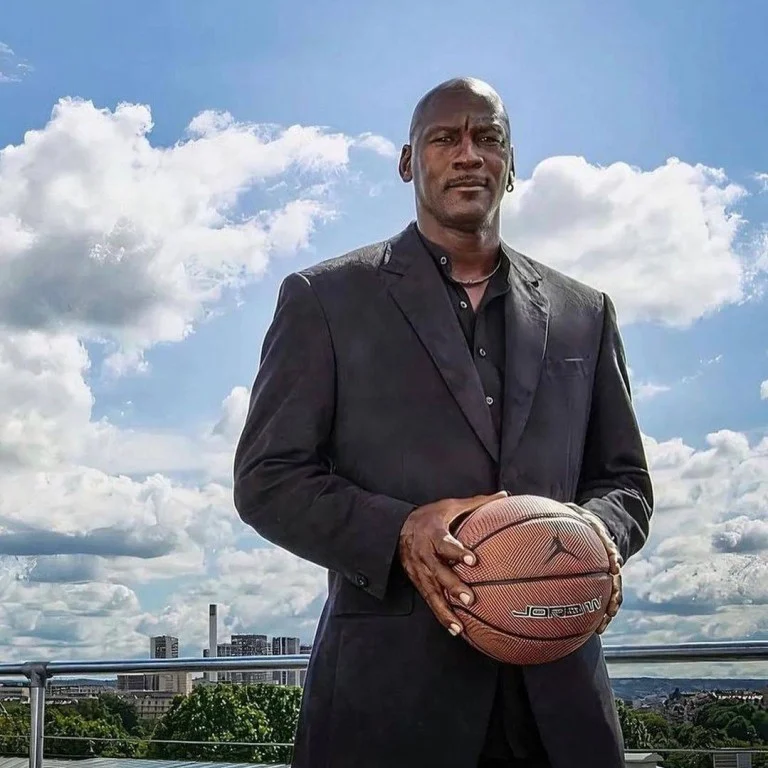

In the world of sports, few names carry as much weight and reverence as Michael Jordan. The basketball legend, often heralded as the greatest player of all time, has not only left an indelible mark on the game but has also amassed considerable wealth and influence. However, despite his many achievements, Jordan has faced his share of criticism, particularly regarding his perceived lack of community involvement and philanthropy. In a rare and candid moment, Jordan recently addressed these critiques, setting the record straight about his contributions to society.
The Criticism
Over the years, Jordan has been the subject of scrutiny, with many questioning his commitment to giving back to the community. Some critics have pointed out that other athletes, such as LeBron James and Magic Johnson, have been more vocal and visible in their philanthropic efforts. They argue that Jordan, with his immense resources and platform, could do more to address social issues and support those in need.
These criticisms have often painted Jordan as someone who is more focused on his personal brand and business ventures than on using his influence for the greater good. The narrative that has emerged is one of a wealthy and successful athlete who, despite his many accolades, has not done enough to give back.
Setting the Record Straight
In a recent interview, Jordan responded to these criticisms, offering a different perspective on his approach to philanthropy and community involvement. “I get criticized for not giving back to the community—But that’s not true,” Jordan said. “I do. I just don’t seek publicity for it.”
Jordan explained that while he may not be as publicly visible in his charitable efforts as some of his peers, he has always been committed to making a difference in the lives of others. He emphasized that his approach to philanthropy is deeply personal and that he prefers to contribute in ways that align with his values and beliefs, rather than seeking public recognition or approval.
A Legacy of Quiet Philanthropy
While Jordan may not be as vocal about his charitable efforts, his actions speak louder than words. Over the years, he has donated millions of dollars to various causes, including education, healthcare, and social justice initiatives. In 2020, Jordan and his Jordan Brand pledged $100 million over ten years to organizations dedicated to ensuring racial equality, social justice, and greater access to education.
Additionally, Jordan has quietly supported numerous other causes, often without fanfare or media attention. For example, he has funded scholarships for students from underprivileged backgrounds, contributed to disaster relief efforts, and provided financial support to healthcare facilities in underserved communities.
The Value of Humility
Jordan’s approach to philanthropy reflects his belief in the value of humility. He has often stated that he does not see the need to broadcast his charitable activities or seek validation from others. For Jordan, the true measure of his contributions is not in how much publicity they generate but in the positive impact they have on the lives of those he helps.
This perspective is a refreshing reminder that philanthropy is not about self-promotion or gaining public accolades. It’s about making a meaningful difference in the world, regardless of whether or not it is recognized by others.
Changing the Narrative
As Jordan continues to navigate his post-basketball life, it is clear that he is determined to change the narrative surrounding his philanthropy. While he may not seek the spotlight, his actions demonstrate a deep and genuine commitment to giving back to the community. His legacy, both on and off the court, is one of excellence, integrity, and a quiet determination to make the world a better place.
In a world where celebrity philanthropy is often tied to public image and media coverage, Michael Jordan’s approach serves as a powerful reminder that true generosity doesn’t require a spotlight. His contributions, though often unseen, have had a profound and lasting impact on countless lives, proving that sometimes the greatest acts of kindness are those done quietly, without the need for recognition or praise.
Leave a Reply